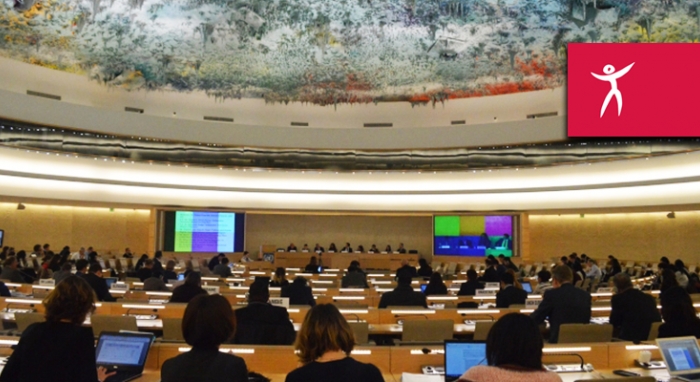In a statement prepared for the closing of the Human Rights Council’s 36th session on behalf of a group of human rights NGOs, the International Service for Human Rights applauded the creation by consensus of an international investigative body on Yemen, and the broad State leadership on this issue, as a step towards much needed accountability for international crimes. The statement also called on all parties to the conflict to fully cooperate with the new group of experts tasked by the Human Rights Council.
ISHR further welcomed the adoption of resolutions to extend the mandate of the Commission of Inquiry on Burundi, and a resolution to step up the United Nations’ fight against reprisals and intimidation against civil society and human rights defenders.
The full statement is available here and below:
Joint statement on behalf of International Service for Human Rights, Cairo Institute for Human Rights Studies (CIHRS), Amnesty International, Asian Forum on Human Rights and Development (Forum Asia), Human Rights House Foundation, CIVICUS, International Lesbian, Gay, Bisexual, Trans and Intersex Association (ILGA), International Commission of Jurists.
Mr President,
We welcome the adoption of the resolution intended to end acts of intimidation or reprisals. However, we regret that a small group of States – most of them regular perpetrators of acts of intimidation or reprisals – have tried to undermine the Council’s efforts to end reprisals. We thank the majority of the Council members for resisting these efforts.
Mr President, we are concerned that there were attempts to dilute several resolutions at this Council with the insertion of so-called “sovereignty” clauses. While we welcome the fact that they were ultimately defeated, we are concerned that a significant number members seek to use the concept of Sovereignty to shield themselves and other States from international scrutiny.
We also welcome that the resolution on the death penalty urges States to not impose it as a sanction for specific forms of conduct such as apostasy, blasphemy, adultery and consensual same-sex relations.
We applaud the creation by consensus of an international investigative body on Yemen, and the broad State leadership on this issue. It sends a message that the people of Yemen have not been abandoned, and that accountability for international crimes is urgently required. We call on all parties to the conflict to fully cooperate with this mandate.
On Burundi, we welcome the extension of the COI’s mandate. This was the only credible response to the CoI’s concerns that crimes against humanity may have been committed, and the persistent non-cooperation of Burundi with both the COI and the OHCHR presence in the country. We urge Burundi to follow through on its promises to start cooperating with the UN system, in line with duties as HRC member, and – failing that – call on the GA to take appropriate action.
On Myanmar, while we welcome the extension of the fact-finding mission’s mandate, we are disappointed that the Council did not do more to address the gravity of the situation on the ground, in particular acknowledging the disproportionate campaign of violence by Myanmar’s security forces in Rakhine State, which have forced around half a million Rohingya to flee to Bangladesh since 25 August. We urge States to use the ongoing UNGA session to address what the High Commissioner described to the Council as a “textbook example of ethnic cleansing.”
On Cambodia, while the Council missed an opportunity for robust scrutiny of the worsening situation, the pre-election reporting in March should put authorities on notice.
On the Democratic Republic of the Congo (DRC), we welcome the Council’s decision to boost scrutiny of the human rights crisis for another year, which shows how horrific the situation has become. The DRC must now cooperate with all Council mechanisms, and the Council needs to keep its eyes on the country until all actors stop committing violations and abuses, and justice for victims has been obtained.
Finally, Mr President, we regret the increasing effort spent on procedural tricks and manoeuvers by States in an attempt avoid scrutiny – including by abusing the privilege of being a member to seek to avoid scrutiny of their own situation – instead of spending diplomatic time and capital on ending human rights violations, which is the Council’s core mandate. A renewed commitment to addressing situations based on objective criteria is now more urgent than ever.
Thank you.
Photo: ISHR




